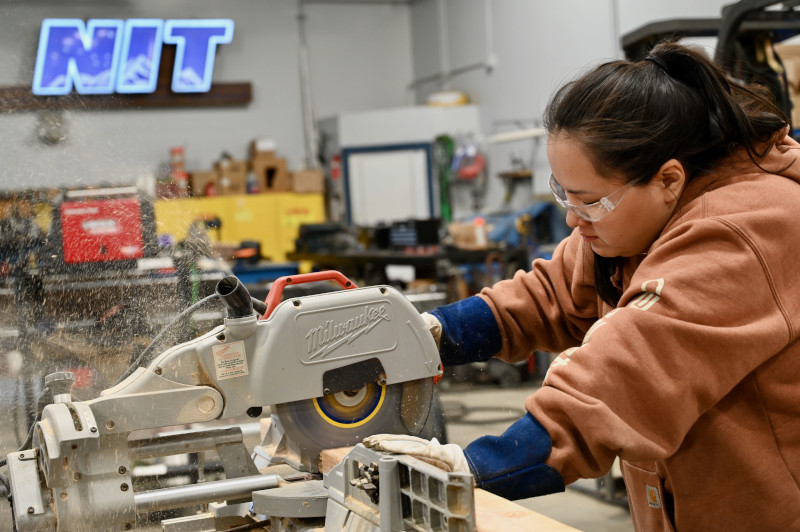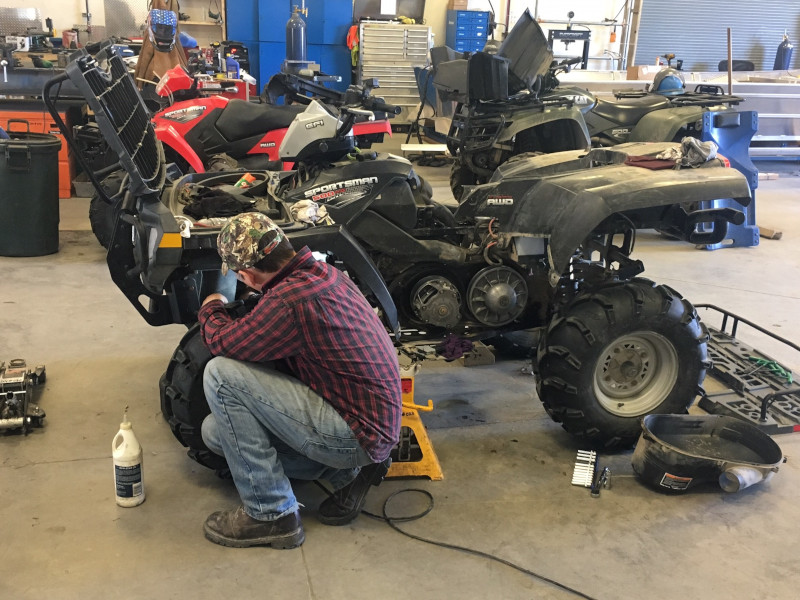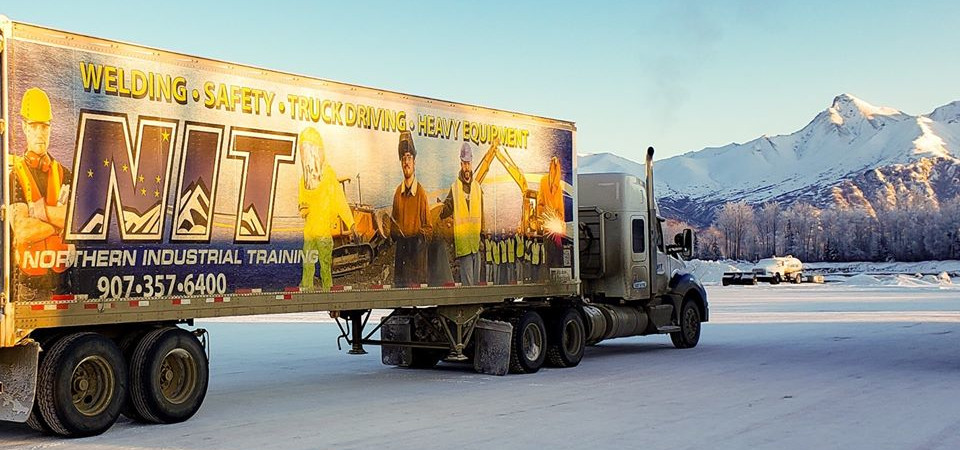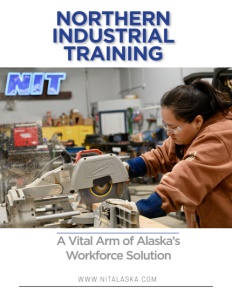NIT Alaska
a vital arm of Alaska’s workforce solution
Providing much-needed training and corporate communication, NIT Alaska prepares new employees to match the state’s skilled workforce needs
In the current workforce, employees hold most of the cards. Where once companies could lay out their demands, the tables have turned, and corporations must be willing to accommodate the needs of much-needed skilled employees. Training the workforce and matching the demands is what Northern Industrial Training (NIT) strives to achieve every day.
Founded in 2003, Northern Industrial Training (NIT) has been a valuable resource in Alaska, where workforce shortages are an ongoing challenge for employers. True to its mission statement, NIT endeavors to be the company of choice for training, safety, and corporate services, recognizing the importance of a highly trained workforce. Providing online and on-site training, NIT is redefining the value of skilled trades in Alaska and is proud to be an important part of the workforce solution.
Most known for its vocational training, NIT prides itself on hands-on skills development, which CEO Joey Crum says is “designed to take somebody from little to no skill, to enough skill to be able to enter the workforce.”
The company also provides safety services, offering everything from regulatory safety to onsite safety audits done by certified professionals. A business solutions service is something else the company offers, which Crum explains combines the expertise of the first two.
He elaborates, “We can embed employees within companies to do everything from day-to-day funcion to workforce development. For example, create in-house programs on how to develop their workforce or recruit non-traditional populations. We’ve had major companies outsource their training and administration department to us.”
Established on the five principles of professionalism, respect, integrity, consistency, and a will to succeed, Crum notes that the founders of NIT were raised in environments where all education was viewed as an improvement. “If you were learning and developing a skill, whether it be one that falls on the vocational or academic side, it was education and learning is lifelong,” he relays.

“Like Mike Rowe, I absolutely hate the term higher education, because that infers that everything that isn’t is lower. Most of the jobs in Alaska don’t require a college degree. You can make exceptionally good money with benefits and retirement and have huge careers in technical-based or vocational-based occupations.”
NIT is programmatically accredited by the National Center for Construction, Education, and Research (NCCER) to teach many different trades, and Crum suggests that the programs the company could offer are far more plentiful than the ones currently available.
“As for the courses that we offer, really, the outcome needs to be a job,” he explains. “What we are focusing on is based on our local economy right now, and what is most needed.”
This includes truck drivers, a profession that has seen shortages for over 10 years, and heavy diesel mechanics, who are also in short supply. “We offer year-round courses in various truck driving programs, mechanics training, and welding. In the summertime, we will offer heavy equipment training as well. We do have some weather issues in Alaska during the winter when it gets a little bit more dangerous and a lot more expensive to dig in ice. Over the last two years, we’ve restarted our carpentry programs, and a program that’s designed as a skilled laborer.”
The company has also developed online programs to support skilled training from within. “When they are trying to recruit people out there, we’ve basically approached them with the idea of, ‘look, you have this typical young person who has a good work ethic because they’re still employed by you’. Let’s invest or start some training programs and mentorship that will allow that person to grow. The idea is that their line-haul fleet will be supplemented, and maybe someday fully populated by those that started at the loading dock,” he describes.
Stressing that upward mobility without skills development is not beneficial, Crum adds that NIT has added subject matter experts, education, and development to help companies provide opportunities for employees without sacrificing standards or skill.
He maintains, “We are big believers in mentorship, and the demographics, in our state particularly, but nationwide show that we have a very large gap, meaning that a huge segment of our population is close to retirement. In a very short period of time, we are going to lose hundreds of years of institutional knowledge. We have to tap into that now before these people decide to retire.”
On the corporate service side, Crum says, “We follow a format so that if one of our employees is embedded within your program, they are employees of NIT before they go. So, that means that they’re coming in with a knowledge base and a course library of the entire company behind them.”
Sending people on-site to conduct mock safety audits with a certified safety professional, to identify shortcomings is another available service, and it is always followed up with a proposed solution. “Alyeska pipeline company which operates the Trans-Alaska Pipeline outsourced for nine years their training administrative department to us. So, if you needed training somewhere within the 800-mile pipeline, we were the ones that vetted whether it really needed to happen, and then found the expert to do it,” he reports.

On the subject of valuable relationships, Crum acknowledges, “The people that we depend on the most for a huge segment of the students that we get in are corporations that are paying for their employees to come. So, when we’re talking about the day-to-day, their impact cannot be understated.” Some of these corporations include Arctic Slope Regional Corporation (ASRC), Cook Inlet Tribal Council (CITC), The Associated Village Council Presidents (AVCP), and Tlingit Haida.
On the vendor side, he mentions the local NAPA stores (operated by Alaskan Auto Inc.) as an integral supplier, who not only provides many of the products needed for the training but also keeps the prices as low as possible. NIT also relies on vendor partnerships with Central Welding Supply, Shoreside Petroleum, and Granger. As well, Crum mentions the importance of the employers, who really are the final step in the process.
“Big employer partners include CarlileTransportation Systems, Weaver Brothers Inc, American Fast Freight, Delta Constructors, local business, American Fast Freight, it just goes across the board,” he says.
While Alaska continues to navigate employee attraction and retention challenges, Crum conveys, “Culture within the workforce has always mattered, but in a workforce shortage situation, it matters more than anything else. I believe that in order to actually have a company employee retention plan, you have to know what your culture is, and what you want it to be. And then you have to double down and reinforce it.”
One strategy NIT uses to help with employee retention is to educate the employer on the workforce they are getting. He says, “We’re in 2023 now, we have 2023 problems, and approaching it with 1995 solutions isn’t going to work.” Hands-on learning is a significant part of skilled workforce development, and it is important to offer training that will be attractive to potential employees.
Crum details that having a program that genuinely fits the corporate culture and structure of a company is one step in the right direction. “It can’t be outside of who you are or it’s fake,” he remarks. “It also needs to be what employees want. So, you have to know your populations.”
2023 is going to see a focus on what NIT calls “client-specific needs and training.” This can be defined as working with companies directly, to develop workforce plans, or training existing employees to do jobs that are needed.
“We are leaning into the online format, utilizing Blackboard for theory delivery at more of a lively pace. It’s about offering more options because the workforce that we have is the workforce that we have. Offering more changes to course offerings that allow them to continue to work and support their families while developing additional skills, that’s really where we need to focus,” says Crum.
NIT will also concentrate on targeting younger workers, and those who are underrepresented while promoting skilled trades as a viable career opportunity.
As for what drives him personally, Crum shares, “It is the success stories. Not necessarily the fights or the barriers that we have to get there, but the success stories. It’s seeing a person at the grocery store, or the gas station, who will bring their family to you to say, ‘Hey, I went to school there and it changed my life’. It’s talking with companies that have struggled for years because they were the training grounds for every other company and finding out that their retention rate has tripled.”
“It’s the successe; it’s being able to connect people to vocations,” Crum concludes.
AT A GLANCE
Northern Industrial Training, Alaska
What: Alaska’s #1 resource for vocational training and corporate training support services.
Where: Palmer and Anchorage, Alaska
Website: www.nitalaska.com





